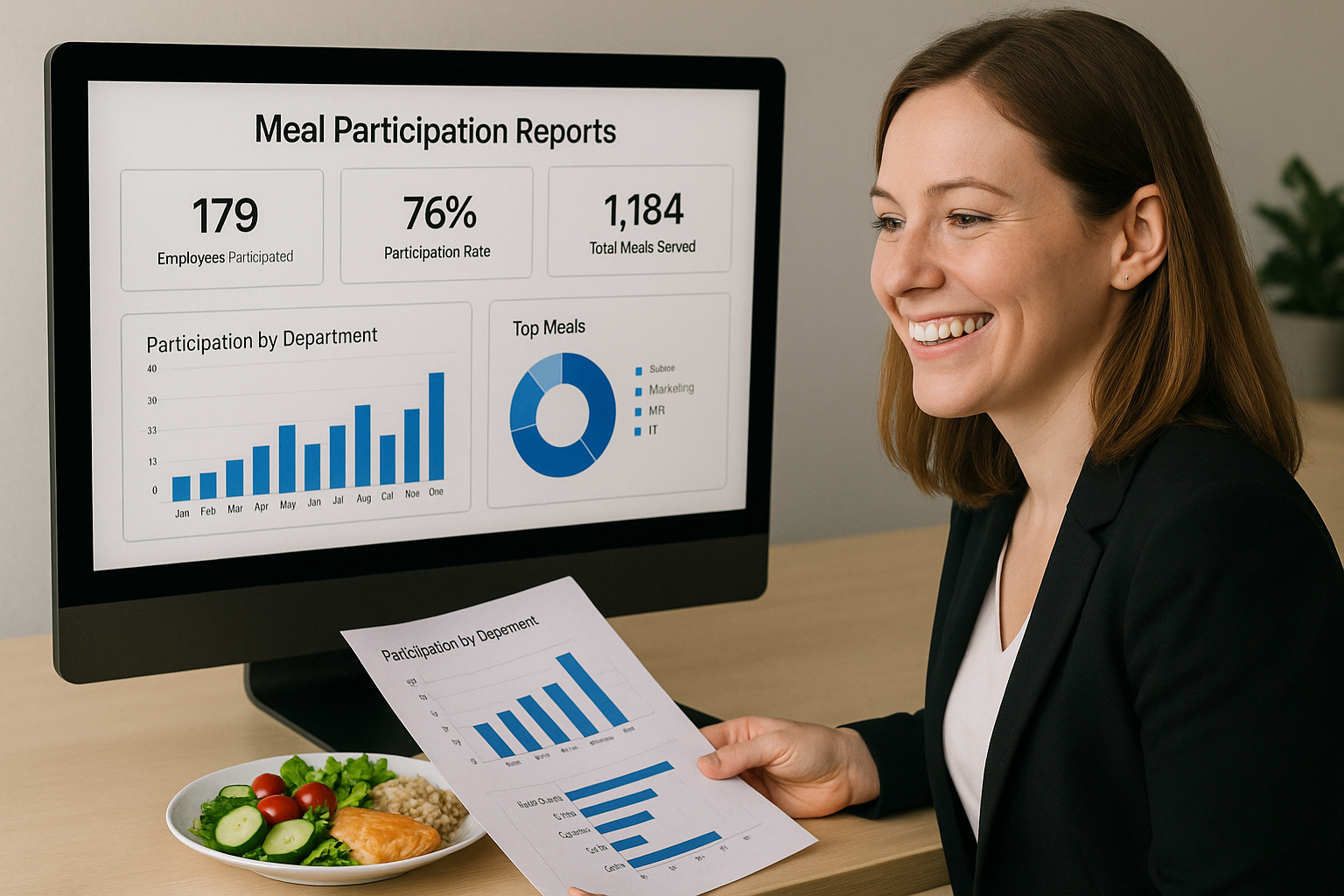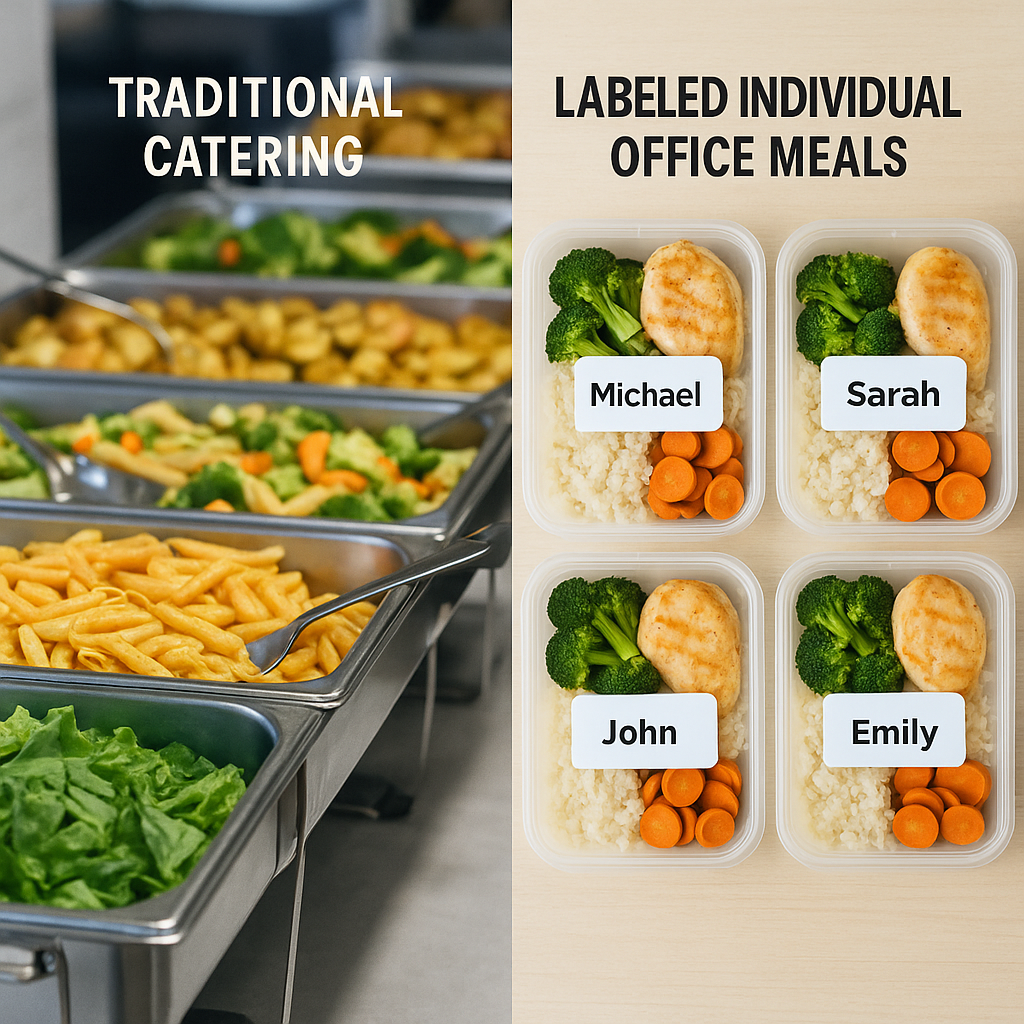Inclusive Catering: Meeting Diverse Dietary Needs in the Modern Canadian Workplace
Inclusive catering in the workplace is no longer optional — it’s essential. Offering diverse, personalized meals shows your team that you respect their identity and care about their well-being. With hungerhub, inclusive catering is easy, scalable, and impactful.
Canada’s workforce is one of the most diverse in the world — culturally, ethnically, and religiously. As companies work to build inclusive environments, how we feed our teams matters.
Inclusive catering isn’t just about offering gluten-free or vegetarian options. It’s about recognizing your team’s cultural, religious, and dietary identities — and making everyone feel valued, respected, and included.
If you're not prioritizing inclusive catering in the workplace, you're likely leaving some employees behind.
What Is Inclusive Catering?
Inclusive catering ensures that all employees — regardless of their dietary restrictions, religious practices, or health preferences — have equal access to meals they can enjoy.
This goes beyond the typical “vegetarian or meat” split. It includes:
- Halal, Kosher, Jain, and other religious-based diets
- Gluten-free, dairy-free, and allergen-conscious meals
- Vegan and vegetarian options
- Cultural cuisine preferences
- Portion sizes, labeling, and allergen transparency
Common Challenges in Creating Inclusive Meal Programs
➡️ Learn how hungerhub solves these problems: Compare traditional catering vs. hungerhub
Best Practices for Inclusive Catering in the Workplace
1. Let Employees Choose Their Meals
This is the easiest way to ensure dietary needs are met. Platforms like hungerhub allow each employee to select their own meal — from halal shawarma to gluten-free salads.
2. Partner with Diverse Local Restaurants
Support inclusion and the local economy by offering meals from culturally representative restaurants.
➡️ Our Marketplace includes a wide range of cuisines across major Canadian cities.
3. Offer Clear Labelling & Transparency
List ingredients, allergens, and dietary markers. This builds trust and supports safety for those with allergies or strict dietary needs.
4. Survey Your Team
Regular feedback helps you understand shifting dietary needs and preferences — and shows employees that their voices matter.
5. Make Inclusivity a Policy, Not a Perk
Ensure your meal program aligns with your DEI (Diversity, Equity & Inclusion) strategy — not just as a nice-to-have, but as part of your cultural foundation.
How hungerhub Leads the Way in Inclusive Catering
hungerhub’s model is built for personalization and inclusion:
- ✅ Employees choose meals based on their preferences and restrictions
- ✅ Admins don’t need to guess or manage spreadsheets
- ✅ Meals come from a wide variety of culturally diverse restaurants
- ✅ Built-in dietary filters support transparency and safety
- ✅ Our Managed Catering option handles everything — setup to delivery
➡️ Learn more about hungerhub’s mission
The Impact of Inclusive Catering
Companies that prioritize inclusive meals see measurable benefits:
- Higher employee satisfaction and participation
- Improved morale and workplace belonging
- Better attendance and lunch engagement
- Reduced food waste
- Support for DEI goals in a tangible way
hungerhub helps companies turn meals into moments of connection — across cultures, preferences, and lifestyles.
Ready to Build an Inclusive Catering Program?
You don’t need to manage it alone. With hungerhub, inclusive meal programs are:
- ✅ Easy to launch
- ✅ Customizable at scale
- ✅ Built for employee happiness
👉 Book a quick discovery call
👉 Or start customizing your team’s meal plan
































.png)



























